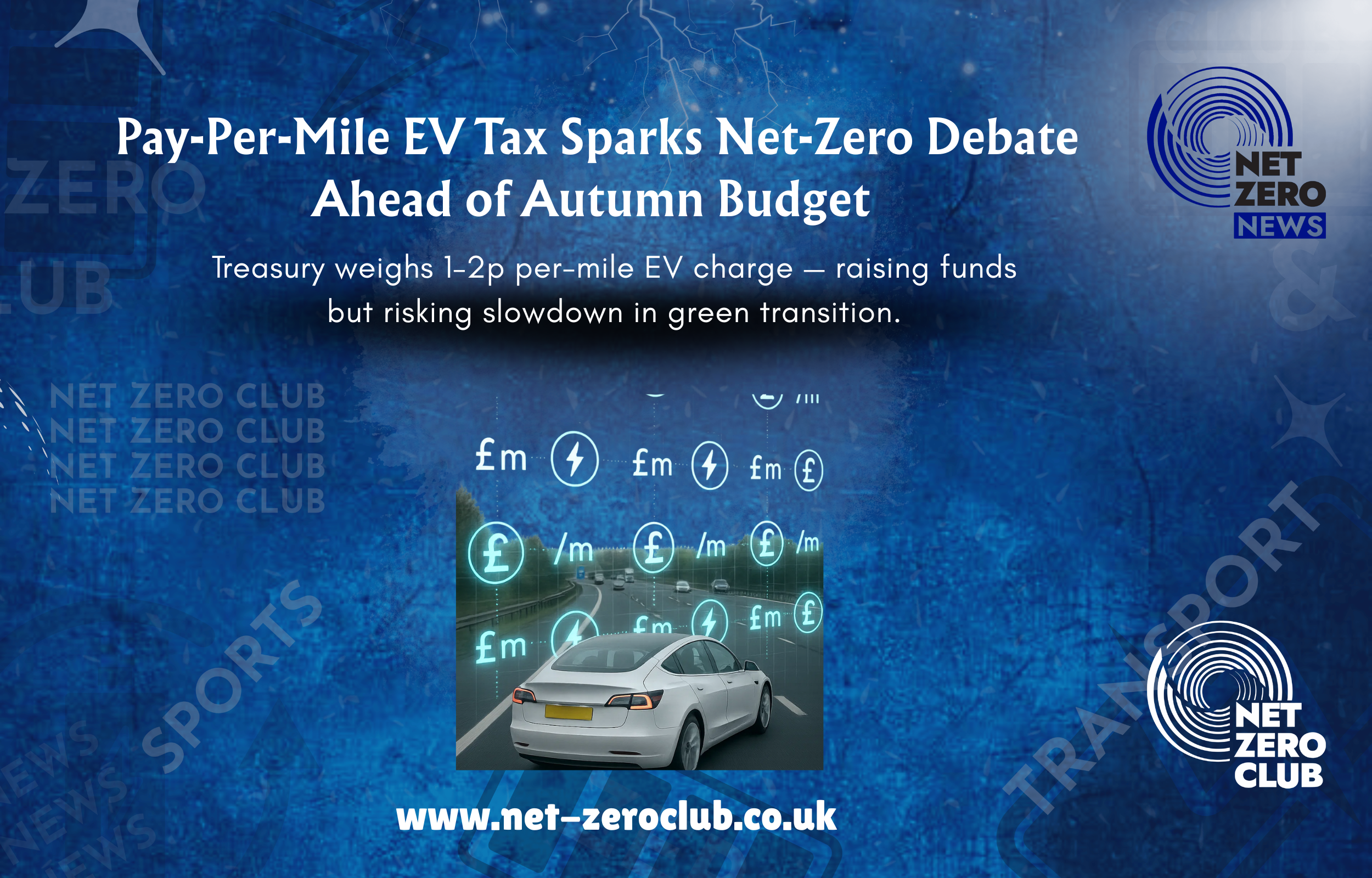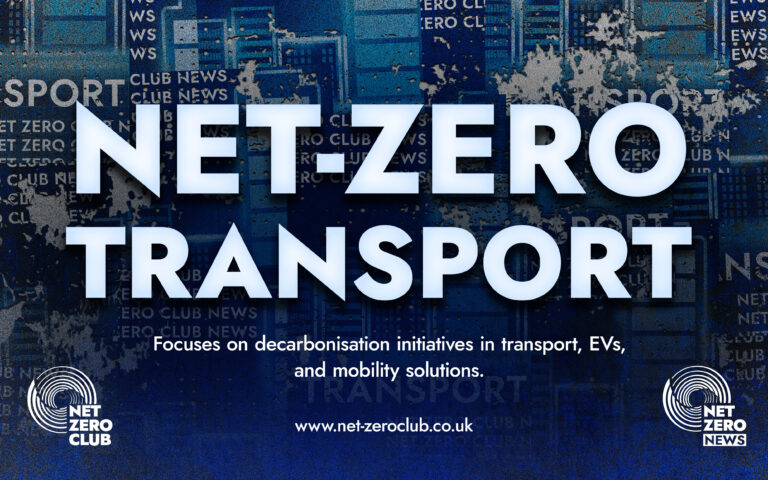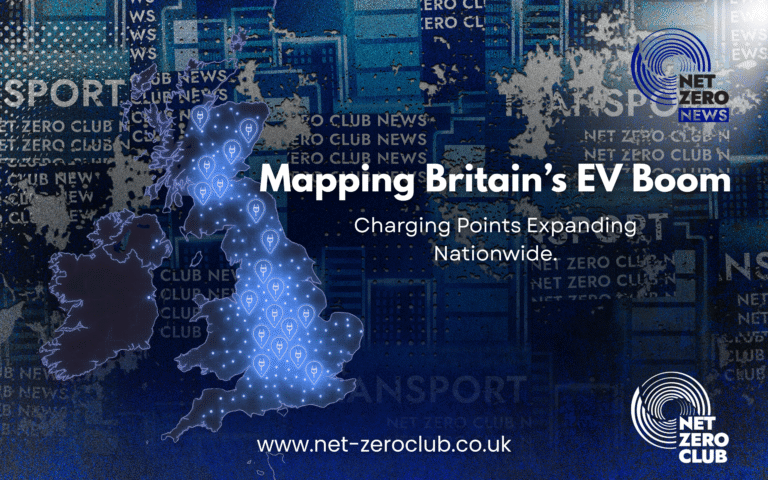Net Zero News: Budget Funds EV Pay-Per-Mile Tax for UK Net-Zero

Welcome to Net Zero News, where we bring you the latest developments driving the UK’s transition to a net-zero future. Net Zero News can reveal that industry groups have sharply responded to reports suggesting that the forthcoming Autumn Budget could introduce a new pay-per-mile charge for electric vehicle drivers across the UK.
Reports emerged this week indicating that Treasury officials are considering a levy on every mile driven in battery electric vehicles, as part of measures to shore up road funding in the face of declining fuel duty revenues. The pay-per-mile proposal is slated for discussion at the Autumn Budget, expected in late November 2025, and has prompted immediate pushback from major motoring organisations and clean transport advocates.
The desire to replace dwindling petrol and diesel tax income has prompted policymakers to explore usage-based charging. Government sources suggest that the charge could range from 1p to 2p per mile for EV drivers, potentially raising hundreds of millions of pounds annually for road maintenance. Net Zero News understands this forms part of a broader review of transport taxation that seeks to reconcile fiscal pressures with the UK’s commitment to decarbonise domestic transport.
In a significant step towards the UK’s net-zero goals, this proposal challenges the longstanding principle of encouraging zero-emission vehicles through fiscal incentives. Since the ban on the sale of new petrol and diesel cars was confirmed for 2035, successive administrations have offered grants, tax breaks and exemption from vehicle excise duty to accelerate EV uptake. A per-mile charge would represent the first time pure battery electric vehicles face direct taxation linked to usage.
The implications for the national net-zero strategy are profound. Transport remains the largest emitting sector in the UK, accounting for roughly 27% of total greenhouse gas emissions. By 2030, the government aims for 50% of new car sales to be electric, reducing CO₂ output and improving air quality. However, an additional mileage charge could slow consumer transition to EVs and undermine targets set out in the Sixth Carbon Budget and the Road to Zero strategy.
Industry stakeholders have responded swiftly. The RAC Foundation warned that a per-mile levy risks disproportionately affecting rural drivers who lack access to public charging infrastructure, while the AA described the proposal as “ill-timed” amid rising household costs. Conversely, some transport economists argue that a usage-based system could incentivise lower vehicle miles and support equitable funding of highway networks.
Net Zero News understands that ministers are also exploring how any revenue raised would be ring-fenced for sustainable transport initiatives. Potential allocations include backing for expanded cycleways, improvements to public transport in underserved areas and grants for home and workplace charging points. Such an approach would aim to balance the fiscal imperative with continued support for modal shift away from fossil-fuel vehicles.
This policy context sits within a broader legislative framework. The Transport Decarbonisation Plan and the Net Zero Strategy both emphasise the need for sustainable funding models to deliver climate goals. Simultaneously, the Treasury is under pressure to meet fiscal targets without reinstating higher fuel duties, making pay-per-mile a compelling, if controversial, option.
Communities and businesses remain divided. Urban commuters face minimal mileage charges but benefit from extensive charging networks, while haulage and delivery firms warn of increased operating costs. Taxi operators and ride-hail drivers are particularly vocal, suggesting that additional levies could be passed on to passengers and disproportionately hit low-income households.
What happens next will be watched closely by all stakeholders. The Treasury is expected to publish a consultation document alongside the Budget in November, inviting feedback from industry, local authorities and the public. A final decision on the pay-per-mile charge is not anticipated until early 2026, after a detailed impact assessment and cross-departmental review.
—
Net Zero News is powered by the Net Zero Club.
Join the UK’s fastest-growing net-zero community.
Upcoming Events:
– Net Zero Scotland Projects Conference
– Net Zero Nations Projects Conference
Got a net-zero project to share? Email: lee@net-zero.scot
—

 Got net-zero news, project updates, or product launches to share?
Got net-zero news, project updates, or product launches to share? 
